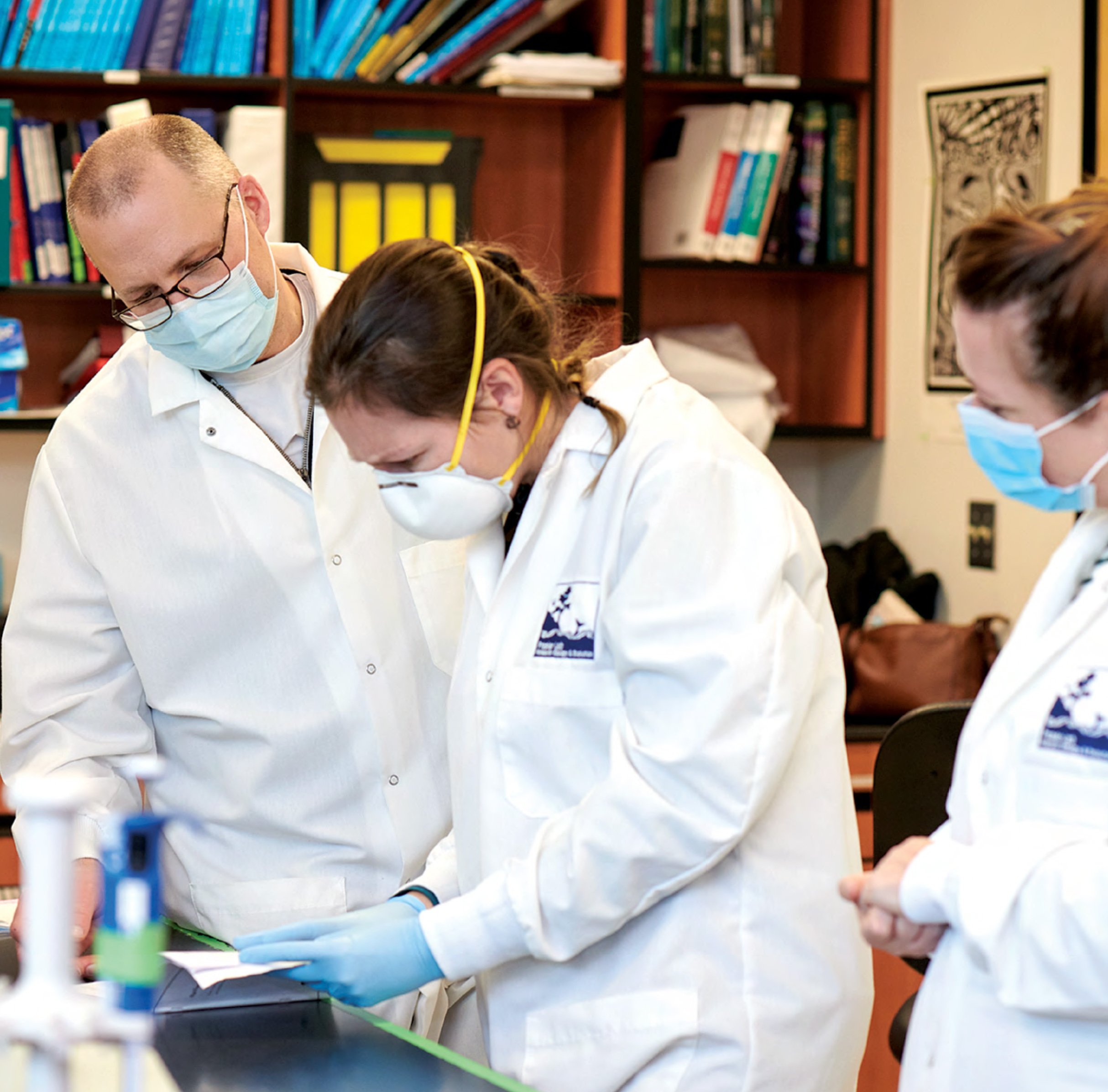Research project examines the genes of endangered North Atlantic right whales to understand low reproductive rates.
By Jessica Long
Dr. Tim Frasier, Carla Crossman, and Kate Chadwick
North Atlantic right whales have been listed as an endangered species in Canada and the United States since 2005. There are an estimated 350 North Atlantic right whales left in the world, and fewer than 100 of those are breeding females. In addition to having a high mortality rate from entanglement in fishing gear and vessel strikes, the low reproductive rate of right whales has perplexed scientists. The right whale’s reproductive rate is three times lower than their known potential. Additionally, a relatively high percentage of females have either never given birth or have had only one calf. The females with multiple calves reproduce on average every six to ten years, as opposed to the expected three-year cycle.
In collaboration with the New England Aquarium and Genome Atlantic, Saint Mary‘s University Biology professor Dr. Timothy Frasier, a specialist in genetic analyses and marine mammal behaviour, is studying the genetic makeup of right whales to understand what factors might be impacting their ability to breed.
“I am excited to continue and deepen our long-standing collaboration with Dr. Frasier,” says Phillip Hamilton, Senior Scientist at the New England Aquarium. “We have been working together for over two decades to better understand the genetic aspects of this beleaguered species. This new work opens the ability to answer long-standing questions and we are curious to see what we will discover.“
Frasier’s research aims to make right whale conservation more effective and efficient while influencing policy change and development to better manage right whale conservation in North America.
The Office of Innovation and Community Engagement facilitates research relationships between Saint Mary’s University and companies, government departments and community organizations.
Read about more innovative partnerships between Saint Mary’s University faculty and industry partners in their 2022 report.

